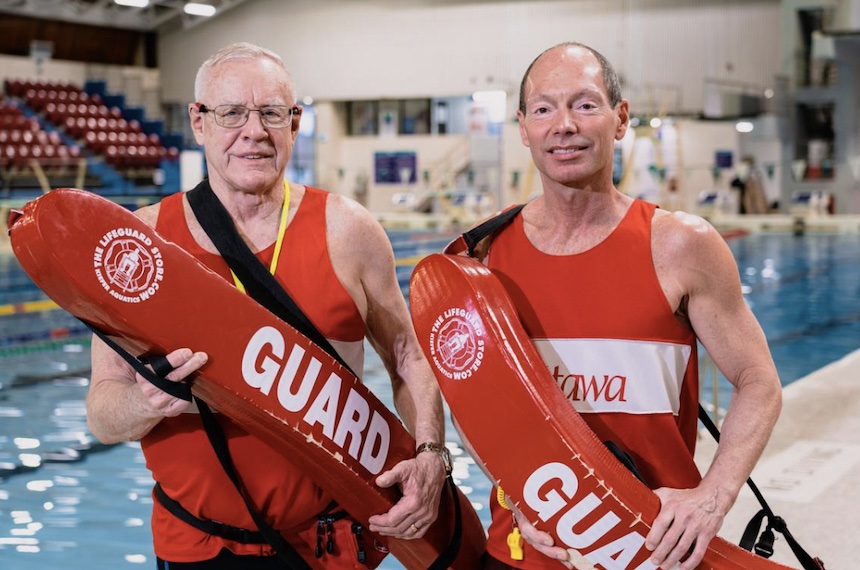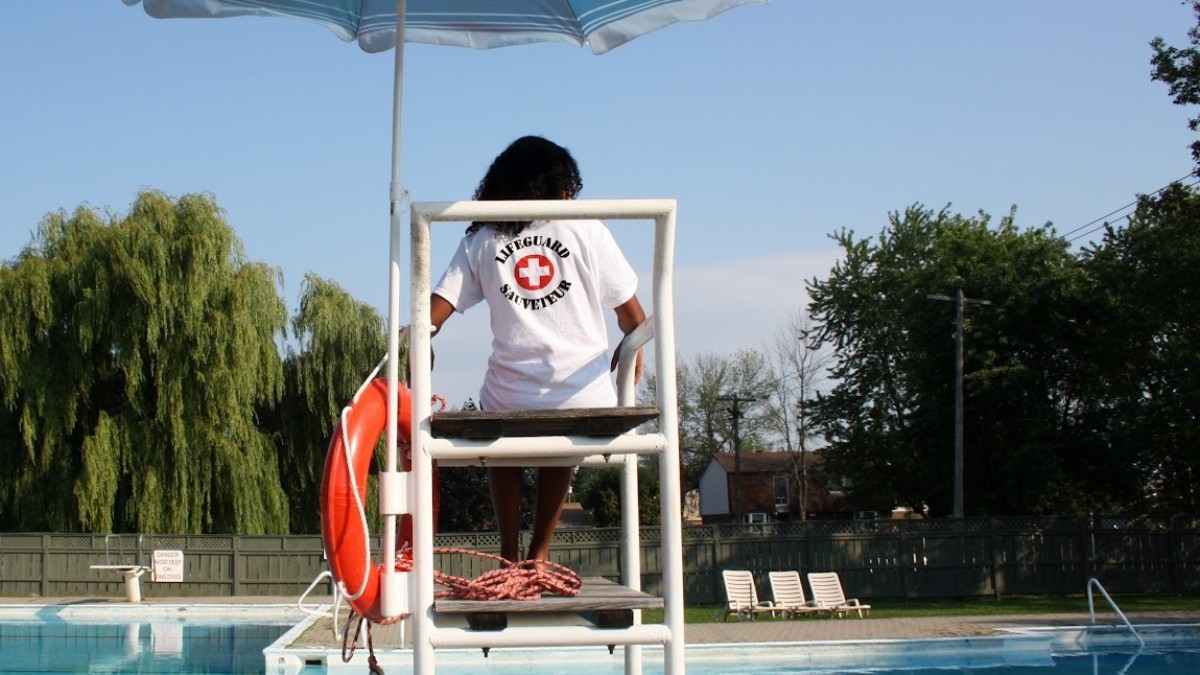It’s an advisory that can be found on websites and at recreational facilities across Ottawa: “Please note that some regular public swims may be cancelled on short notice due to a shortage of lifeguards.”
The message was recently sent to local residents on Family Day — as it had been previously on Remembrance Day, Thanksgiving Day, and Truth and Reconciliation Day — and appears on many other City of Ottawa sites.
A lifeguard shortage that forced the cancellation of many public swimming sessions and skills classes last year is expected to prove challenging again this summer, seriously affecting the recreational options of city residents.
The reasons for the shortage are varied, but include pandemic-induced pool closures for much of the past three years, which curtailed training and certification programs that would have produced many newly qualified lifeguards.
Anna Dalton, an instructor who teaches the lifeguard course at H2O Pool School — a private company that offers lifeguard training programs — also blames the shortage on the high cost of becoming a lifeguard.
“Typically, it costs more than $1,000 to complete a series of national lifeguard certification courses, and it’s a very big financial strain to most people,” Dalton said.
According to a recently posted City of Ottawa job ad aimed at recruiting part-time lifeguards, which invites applications until May 5, local lifeguards are paid between $16.45 and $17.75 per hour.
“It’s really not an equitable thing,” said Dalton.
The most immediate result of the lifeguard shortage is the closure of pools, as having lifeguards to ensure safe swimming is a basic requirement for any aquatic facility.
“It was especially difficult during the pandemic, when for a long time people couldn’t go out and swim and there weren’t a lot of lifeguards coming in to apply.’
— Natalya Kwiatkowski, owner, Hippo in the Bathtub
Last summer, the City of Ottawa had to cancel so many swimming lessons and public swims that its lifeguard shortage drew widespread media attention. Other cities have had similar challenges attracting and keeping enough lifeguards to staff public pools.
Many Ottawa pools are struggling to recruit lifeguards to maintain the facilities’ regular opening hours. Natalya Kwiatkowski, owner of Hippo in the Bathtub, spoke of the challenges of maintaining a stable and adequate lifeguard team.
The company offers swimming lessons at pools in Stittsville, Nepean and at the Trainyards in east-central Ottawa.
“It was especially difficult during the pandemic, when for a long time people couldn’t go out and swim and there weren’t a lot of lifeguards coming in to apply,” said Kwiatkowski. “There was a gap of about a year to a year and a half” because of COVID-related pool closures.
Hippo in the Bathtub is currently hiring part-time and full-time lifeguards.

The City of Ottawa is also stepping up its efforts to attract lifeguards. In January, the city released a promotional article hedlined, “Lifeguarding Can Take You Places, No Matter Your Age”. The article told the story of two retirees — Mike Olsen, 80, and Bruce McNicoll — who have become lifeguards at the Nepean Sportsplex, and encouraged people from all age groups to become qualified lifeguards.
“The process to become a lifeguard with the City of Ottawa may seem long, but it is rewarding and necessary, now more than ever,” the article, produced by the city’s recreation department, stated. “The City works hard to keep aquatic programs running at full capacity and as a result is always in need of lifeguards. If you or someone you know has been thinking about starting the process, now is the time!”
‘Nothing will replace the feeling that you get once you’ve helped someone, and they thank you for that. It’s indescribable.”
— Kurtis Adamus, former lifeguard and general manager, H2O Pool School
H2O Pool School, where Dalton works, is aiming to address the lifeguard shortage by offering free training to help maintain its staffing.
“The initial conception of pool school was, well, we need lifeguards, so why don’t we just train them for free?” said Kurtis Adamus, a former lifeguard and the general manager of H2O.
He explained that waiving the cost of training can help steer people towards work as a lifeguard rather than other jobs that offer similar pay but have no up-front certification costs.
“I’m proud to say that we’ve managed to just in a matter of months, train approximately 20 to 30 lifeguards.”
H2O is seeking funding to continue its free training program and has been seeking support from city officials.
Adamus said lifeguarding is a promising career and that H2O looks forward to expanding its training program.
“Nothing will replace the feeling that you get once you’ve helped someone, and they thank you for that,” he said. “It’s indescribable. “


